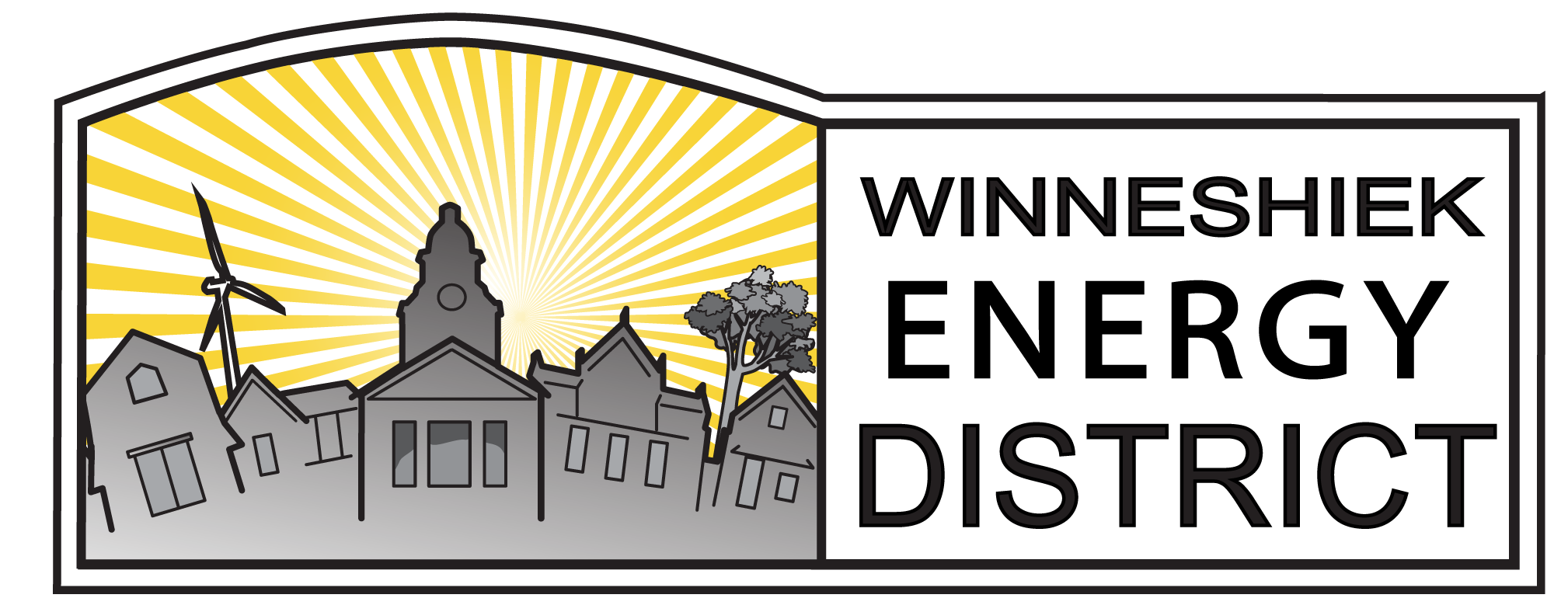Empowering Allamakee County
Jim Martin-Schramm, WED Board Member
The Winneshiek Energy District (WED) recently received a modest grant from the Solutions Project to help Allamakee County manage impacts related to Alliant Energy’s decision to close the Lansing Generating Station by the end of 2022. WED’s goal is to help the citizens of Allamakee County transition away from a fossil fuel past to a locally-owned, clean energy future.
WED has worked with members of the Allamakee Energy District to form the Lansing Transition Group, which is an ad hoc organization that includes members of the Lansing City Council, Main Street Lansing, the Allamakee County Board of Supervisors, Allamakee County Economic Development, and Eastern Allamakee School District. Representatives from Alliant Energy have also been participating in the group.
WED’s work with the Lansing Transition Group revolves around three main areas:
Resilience through Distributed Energy Resources. About half of Allamakee County lacks access to the natural gas distribution grid. As a result, WED is partnering with Alliant Energy to provide critical technical and energy planning assistance to the propane-dependent households, businesses, and public institutions in Allamakee County. Wise investments in energy efficiency, on-site solar, and building electrification could help many in the county reduce high energy costs and recycle those dollars in their local economy.
Plant Site and Grid Opportunities. In partnership with the county, the City of Lansing, the Riverland Conservancy, Alliant Energy, and various scientists at laboratories associated with the Department of Energy labs, WED is researching clean energy investment options that could replace the coal-fired power plant, such as large-scale energy storage as well as other options that would utilize the site and/or high-voltage transmission interconnection node.
Resource Leverage. Finally, WED is collaborating with community leadership to identify major community needs and opportunities related to the two areas discussed above, as well as others such as affordable housing. With these needs identified, WED will work with various partners in the Lansing Transition Group to pursue state and federal funding resources to meet these needs–ideally by accessing funds that have been set aside to help communities transition away from coal.
WED Board member, Jim Martin-Schramm, has been serving as the convener of the Lansing Transition Group and is happy to answer any questions or add folks to the list of members.
